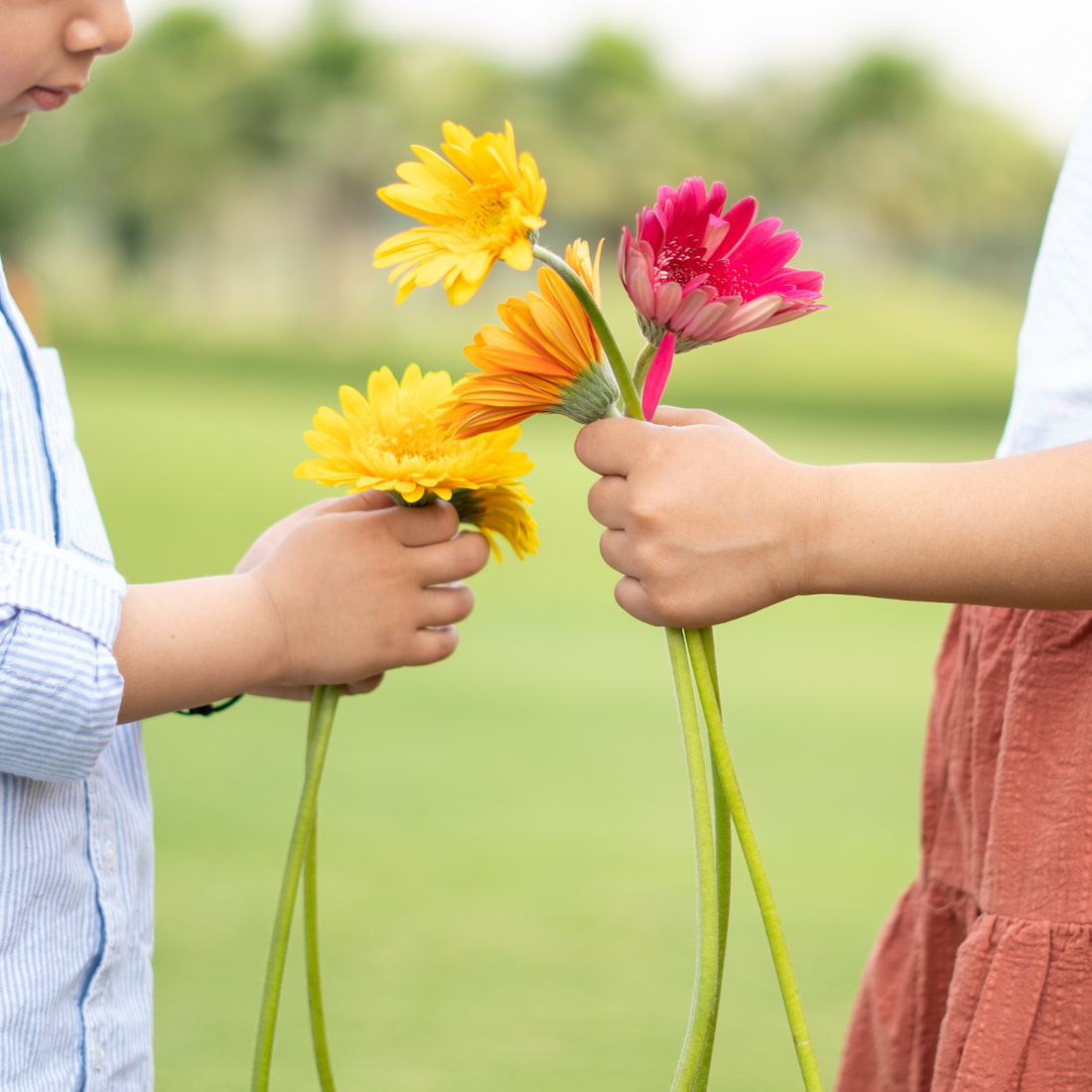
7 Ways to Deal with Your Kid's Allergies This Spring: A Parent's Guide
Share
Spring is a beautiful season filled with blooming flowers, longer days, and outdoor adventures. However, for many kids, it also means dealing with seasonal allergies.
As pollen fills the air, children with allergy sensitivities can experience sneezing, runny noses, itchy eyes, and congestion, which can put a damper on all the fun. But don’t worry — there are ways to help manage your child’s allergies and keep them comfortable throughout the season. Here’s a practical guide to help you navigate your child’s spring allergies:
1. Understand the Common Symptoms of Spring Allergies
Seasonal allergies are often caused by pollen from trees, grass, and flowers. Common symptoms include:
• Sneezing
• Runny or stuffy nose
• Itchy or watery eyes
• Coughing or wheezing
• Fatigue
If your child is showing these signs, it could be time to take action to help relieve their symptoms.
2. Track Pollen Counts
Pollen levels are typically highest in the morning and can fluctuate based on the weather. Keep an eye on the daily pollen count by checking local weather websites or apps. On high-pollen days, try to limit your child's outdoor exposure, especially in the morning hours.
3. Create an Allergy-Friendly Home
The indoor environment plays a huge role in managing your child’s allergies. Here are some simple steps you can take to reduce allergens in your home:
• Keep windows closed during high pollen days, especially in the morning and evening.
• Wash your child’s hands and face after playing outdoors to remove any pollen that may have settled on their skin.
• Shower before bed to rinse off pollen from their hair and body, helping them avoid transferring allergens to their pillows and sheets.
• Use air purifiers with HEPA filters to help clean the air in your home.
4. Offer Allergy Relief Options
For many children, medication can be an essential part of allergy management. The best solution for fast and precise allergy relief is DrKids Children’s Allergy Relief Vials. These pre-measured, single-use vials contain Diphenhydramine HCl (12.5mg) per 5ml, providing quick relief from common allergy symptoms like sneezing, itchy nose and throat, watery eyes, and runny noses.
5. Encourage Allergy-Friendly Outdoor Fun
While it’s important to manage your child’s exposure to allergens, spring is also a time for fresh air and fun outside! Here are some tips to help your child enjoy the outdoors without triggering allergies:
• Choose the right time: Go outdoors later in the day, after the pollen count has dropped, and avoid early morning when pollen levels are at their peak.
• Stay in less allergenic areas: Parks or areas with fewer blooming trees and grasses are ideal for allergy sufferers.
• Wear sunglasses and hats: These can help keep pollen away from your child’s eyes and hair.
6. Maintain Healthy Habits for Overall Immunity
Boosting your child’s immune system with healthy foods can help them stay strong and fight off allergies. Incorporate foods rich in vitamin C, such as citrus fruits, berries, and leafy greens, which can support their immune health. For an extra immune kick try our DrKids Immune Support Multivitamins or our DrKids Probiotic Vitamin D Drops. Also, make sure they’re staying hydrated, as this can help thin mucus and alleviate congestion.
7. Consult Your Pediatrician
If your child’s allergy symptoms persist or worsen, it’s a good idea to consult their pediatrician. They can help determine if the allergies are severe enough to require stronger medications or a more specialized treatment plan.
Spring allergies don’t have to ruin your child’s outdoor fun! With the right strategies — and the convenience of DrKids supplements and OTC medicines — you can help them manage their symptoms and enjoy the season.




